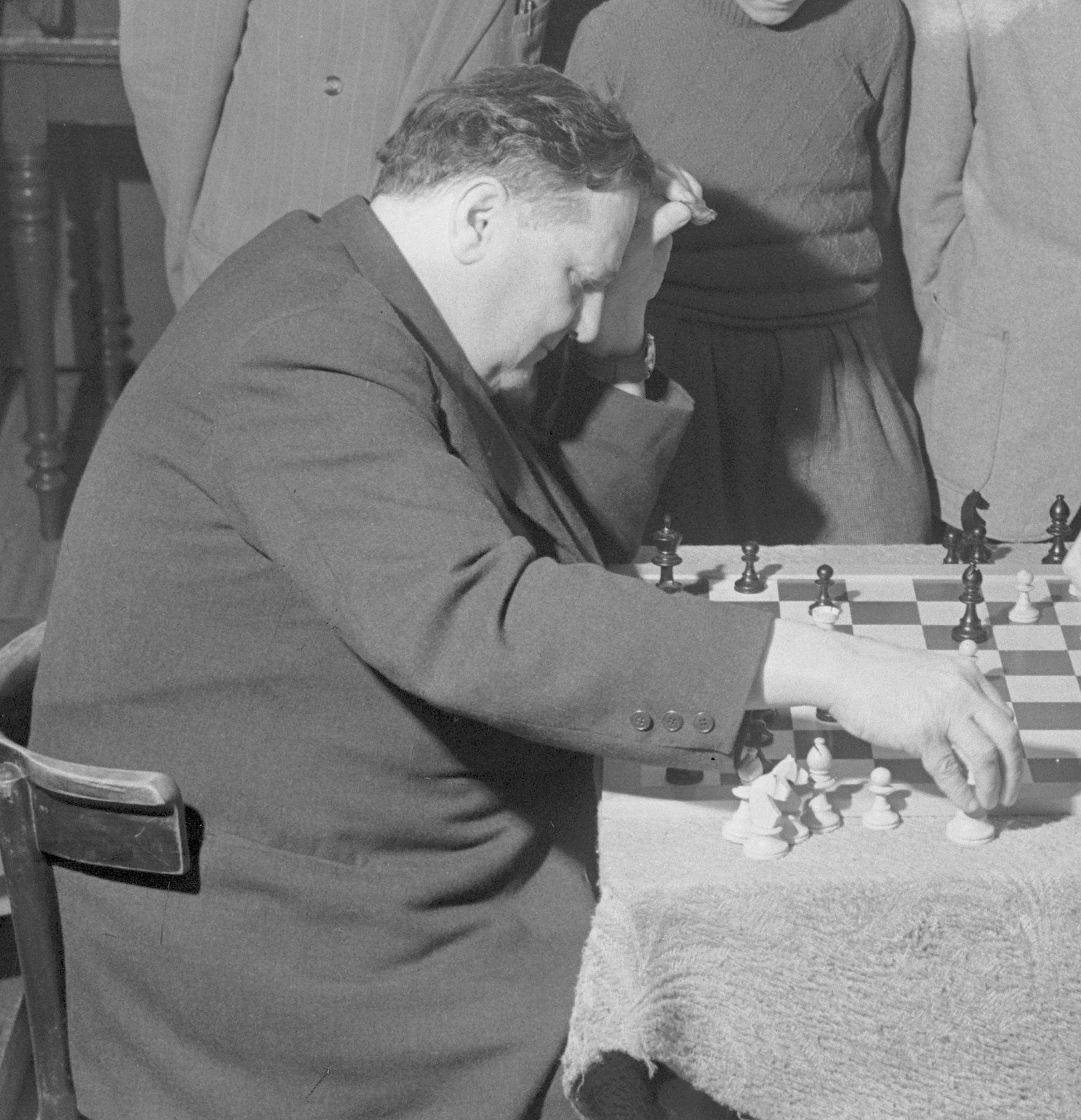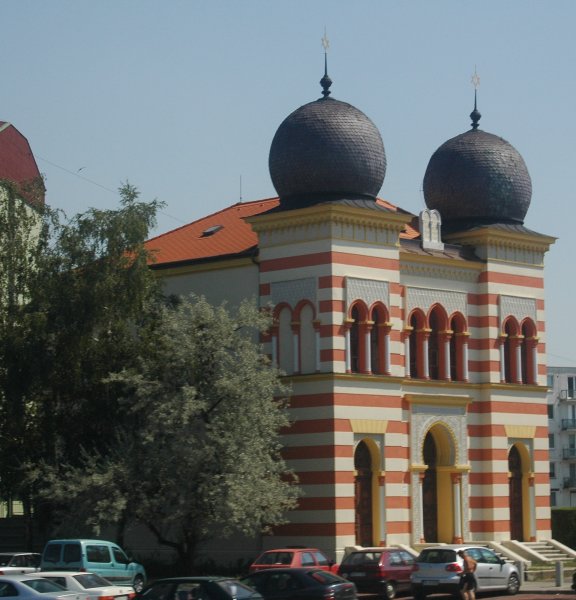|
Leo Zobel
Leo Zobel (28 January 1895, Nitra - 25 April 1962) was a Slovak chess master. He won the 7th Czechoslovak Chess Championship at Prague 1931. He also took 12th at Trenčianske Teplice 1928 ( Boris Kostić won), tied for 9-10th at Brno 1929 (the 6th CSR-ch, Karel Opočenský Karel Opočenský (7 February 1892 – 16 November 1975) was a Czechoslovak chess master. Chess career Opočenský was four-time Czech Champion (1927, 1928, 1938, and 1944). In 1919, he took 2nd, behind František Schubert, in Prague ( Czechoslo ... won), and tied for 10-11th at Stubňanské Teplice 1930 ( Andor Lilienthal won). Name Index to Jeremy Gaige's ''Chess Tournament Crosstables'', An Electronic Edition, Anders Thulin, Malmö, 2004-09-01 References External links * 1895 births 1962 deaths Sportspeople from Nitra Slovak Jews Slovak chess players Jewish chess players 20th-century chess players {{Slovakia-chess-bio-stub ... [...More Info...] [...Related Items...] OR: [Wikipedia] [Google] [Baidu] |
Nitra
Nitra (; also known by other alternative names) is a city in western Slovakia, situated at the foot of Zobor Mountain in the valley of the river Nitra. It is located 95 km east of Bratislava. With a population of about 78,353, it is the fifth largest city in Slovakia. Nitra is also one of the oldest cities in Slovakia; it was the political center of the Principality of Nitra. Today, it is a seat of a ''kraj'' (Nitra Region), and an '' okres'' (Nitra District). Etymology The first mention of Nitra dates back to the 9th century. The name of the city is derived from the Nitra river. The name is Indo-European, but the question of its pre-Slavic or Slavic origin has not been satisfactorily answered. Nitra might be derived from the old Indo-European root ''neit-'', ''nit-'' meaning "to cut" or "to burn" using a derivation element ''-r-'' (see also slash-and-burn agricultural technique). The same root is still present in the Slovak verb ''nietiť'' (to make a fire), but also in othe ... [...More Info...] [...Related Items...] OR: [Wikipedia] [Google] [Baidu] |
Chess
Chess is a board game for two players, called White and Black, each controlling an army of chess pieces in their color, with the objective to checkmate the opponent's king. It is sometimes called international chess or Western chess to distinguish it from related games, such as xiangqi (Chinese chess) and shogi (Japanese chess). The recorded history of chess goes back at least to the emergence of a similar game, chaturanga, in seventh-century India. The rules of chess as we know them today emerged in Europe at the end of the 15th century, with standardization and universal acceptance by the end of the 19th century. Today, chess is one of the world's most popular games, played by millions of people worldwide. Chess is an abstract strategy game that involves no hidden information and no use of dice or cards. It is played on a chessboard with 64 squares arranged in an eight-by-eight grid. At the start, each player controls sixteen pieces: one king, one queen, two rooks, t ... [...More Info...] [...Related Items...] OR: [Wikipedia] [Google] [Baidu] |
Czechoslovak Chess Championship
The Czechoslovak National Chess Championship was a chess competition to determine the best Czechoslovak chess player. History The first Czechoslovak championships were held in Prague in 1919. After a break caused by World War II, the championships were held until 1992. Twelve tournaments were organized within international open tournaments;the best Czech or Czechoslovak player then won the title - such tournaments are marked with an asterisk in the following list and the overall ranking of the eventual champion in the tournament is added in brackets. on the Czech Chess Union website List of winners : During |
Boris Kostić
Borislav Kostić (24 February 1887 – 3 November 1963) was a Yugoslav chess grandmaster and a popularizer of the game. Life and chess Borislav Kostic was born in Vršac, Kingdom of Hungary, at the time part of Austria-Hungary. His father Dimitrije was a merchant and his mother was Emilija (née: Mandukić). He learned chess around the age of ten and made rapid progress while studying Oriental Trade in Budapest. He also spent time in Vienna, the chess capital of the day, and this enabled him to get the high level practice necessary to take his game to the next level. In 1910 he moved to Cologne and from there, travelled and toured extensively, mainly in the Americas, playing matches against local champions and simultaneous blindfold chess. At New York in 1916, he once played twenty opponents without sight of a board and won nineteen games and drew one, while engaging in polite conversation with opponents and spectators. Kostic played more formal matches against Frank Ma ... [...More Info...] [...Related Items...] OR: [Wikipedia] [Google] [Baidu] |
Karel Opočenský
Karel Opočenský (7 February 1892 – 16 November 1975) was a Czechoslovak chess master. Chess career Opočenský was four-time Czech Champion (1927, 1928, 1938, and 1944). In 1919, he took 2nd, behind František Schubert, in Prague ( Czechoslovak Chess Championship). In 1925, he tied for 3rd–4th in Paris (Alexander Alekhine won). In 1927, he won in Česke Budějovice (CSR-ch). In 1928, he won in Brno (CSR-ch). In 1933, he won at Prague (the 10th Vaclav Kautsky Memorial). In 1935, he took 4th in Bad Nauheim (Efim Bogoljubow won). In 1935, Opočenský took fourth place in Łódź (Savielly Tartakower won). In 1935, he won in Luhačovice. In 1936, he took second place, behind Henryk Friedman, in Vienna. In 1937, he took second, behind Karl Gilg, in Teplice (Teplitz Schönau). In 1938, he won in Nice. In 1938, he tied for first with Hermann in Prague (CSR-ch). Opočenský played for Czechoslovakia four times in the Chess Olympiads. * In 1931, he played at fourth board in 4th C ... [...More Info...] [...Related Items...] OR: [Wikipedia] [Google] [Baidu] |
Andor Lilienthal
Andor (André, Andre, Andrei) Arnoldovich LilienthalReuben Fine, ''The World's Great Chess Games'', Dover Publications, 1983, p. 216. . (5 May 1911 – 8 May 2010) was a Hungarian and Soviet chess player. In his long career, he played against ten male and female world champions, beating Emanuel Lasker, José Raúl Capablanca, Alexander Alekhine, Max Euwe, Mikhail Botvinnik, Vasily Smyslov, and Vera Menchik.Slobodan AdzicHe Has Beaten Lasker, Capablanca, Alekhine as well as Old Age! ChessBase News, May 30, 2005. At the time of his death, he was the oldest living grandmaster (since surpassed by Yuri Averbakh), and the last surviving person from the original group of grandmasters awarded the title by FIDE in 1950. Biography Lilienthal, of Jewish origin, was born in Moscow, Russian Empire, and moved to Hungary at the age of two. David Hooper and Kenneth Whyld, ''The Oxford Companion to Chess'' (2nd ed. 1992), Oxford University Press, p. 226. . He played for Hungary in three Chess O ... [...More Info...] [...Related Items...] OR: [Wikipedia] [Google] [Baidu] |
1895 Births
Events January–March * January 5 – Dreyfus affair: French officer Alfred Dreyfus is stripped of his army rank, and sentenced to life imprisonment on Devil's Island. * January 12 – The National Trust for Places of Historic Interest or Natural Beauty is founded in England by Octavia Hill, Robert Hunter and Canon Hardwicke Rawnsley. * January 13 – First Italo-Ethiopian War: Battle of Coatit – Italian forces defeat the Ethiopians. * January 17 – Félix Faure is elected President of the French Republic, after the resignation of Jean Casimir-Perier. * February 9 – Mintonette, later known as volleyball, is created by William G. Morgan at Holyoke, Massachusetts. * February 11 – The lowest ever UK temperature of is recorded at Braemar, in Aberdeenshire. This record is equalled in 1982, and again in 1995. * February 14 – Oscar Wilde's last play, the comedy ''The Importance of Being Earnest'', is first shown at St Jam ... [...More Info...] [...Related Items...] OR: [Wikipedia] [Google] [Baidu] |
1962 Deaths
Year 196 ( CXCVI) was a leap year starting on Thursday (link will display the full calendar) of the Julian calendar. At the time, it was known as the Year of the Consulship of Dexter and Messalla (or, less frequently, year 949 ''Ab urbe condita''). The denomination 196 for this year has been used since the early medieval period, when the Anno Domini calendar era became the prevalent method in Europe for naming years. Events By place Roman Empire * Emperor Septimius Severus attempts to assassinate Clodius Albinus but fails, causing Albinus to retaliate militarily. * Emperor Septimius Severus captures and sacks Byzantium; the city is rebuilt and regains its previous prosperity. * In order to assure the support of the Roman legion in Germany on his march to Rome, Clodius Albinus is declared Augustus by his army while crossing Gaul. * Hadrian's wall in Britain is partially destroyed. China * First year of the '' Jian'an era of the Chinese Han Dynasty. * Emperor Xian of ... [...More Info...] [...Related Items...] OR: [Wikipedia] [Google] [Baidu] |
Sportspeople From Nitra
An athlete (also sportsman or sportswoman) is a person who competes in one or more sports that involve physical strength, speed, or endurance. Athletes may be professionals or amateurs. Most professional athletes have particularly well-developed physiques obtained by extensive physical training and strict exercise accompanied by a strict dietary regimen. Definitions The word "athlete" is a romanization of the el, άθλητὴς, ''athlētēs'', one who participates in a contest; from ἄθλος, ''áthlos'' or ἄθλον, ''áthlon'', a contest or feat. The primary definition of "sportsman" according to Webster's ''Third Unabridged Dictionary'' (1960) is, "a person who is active in sports: as (a): one who engages in the sports of the field and especially in hunting or fishing." Physiology Athletes involved in isotonic exercises have an increased mean left ventricular end-diastolic volume and are less likely to be depressed. Due to their strenuous physical activities, ... [...More Info...] [...Related Items...] OR: [Wikipedia] [Google] [Baidu] |
Slovak Jews
The history of the Jews in Slovakia goes back to the 11th century, when the first Jews settled in the area. Early history In the 14th century, about 800 Jews lived in Bratislava, the majority of them engaged in commerce and money lending. In the early 15th century, a Jewish cemetery was established at Tisinec and was in use until 1892. In 1494, a blood libel caused sixteen Jews to be burned at the stake in Trnava, and in 1526, after the Battle of Mohács, Jews were expelled from all major towns. In 1529, thirty Jews were burned at the stake in Pezinok. In the late 17th century and early 18th century, Jews began to return to their original cities and establish organized communities, though they were barred from many trading industries and often in conflict with non-Jews. In 1683, hundreds of Jews from Moravia fled to the Hungarian Kingdom, seeking refuge from Kuruc riots and restrictions on their living imposed in Moravia. In 1700, a leading yeshiva was established in Bra ... [...More Info...] [...Related Items...] OR: [Wikipedia] [Google] [Baidu] |
Slovak Chess Players
Slovak may refer to: * Something from, related to, or belonging to Slovakia (''Slovenská republika'') * Slovaks, a Western Slavic ethnic group * Slovak language, an Indo-European language that belongs to the West Slavic languages * Slovak, Arkansas, United States See also * Slovák, a surname * Slovák, the official newspaper of the Slovak People's Party Hlinka's Slovak People's Party ( sk, Hlinkova slovenská ľudová strana), also known as the Slovak People's Party (, SĽS) or the Hlinka Party, was a far-right clerico-fascist political party with a strong Catholic fundamentalist and authorit ... * {{disambiguation, geo Language and nationality disambiguation pages ... [...More Info...] [...Related Items...] OR: [Wikipedia] [Google] [Baidu] |
Jewish Chess Players
Jewish players and theoreticians have long been involved in the game of chess and have significantly contributed to the development of chess, which has been described as the "Jewish National game". Chess gained popularity amongst Jews in the twelfth century. The game was privileged by distinguished rabbis, as well as by women. Of the first 13 undisputed world champions, over half were Jewish, including the first two. The Modern School of Chess espoused by Wilhelm Steinitz and Siegbert Tarrasch; the Hypermodernism influenced by Aron Nimzowitsch and Richard Réti; and the Soviet Chess School promoted by Mikhail Botvinnik were all strongly influenced by Jewish players. Other influential Jewish chess theoreticians, writers and players include Johannes Zukertort, Savielly Tartakower, Emanuel Lasker, Akiba Rubinstein, Gyula Breyer, Rudolf Spielmann, Samuel Reshevsky, Reuben Fine, David Bronstein, Miguel Najdorf, Mikhail Tal and Bobby Fischer. Professor Arpad Elo, the ... [...More Info...] [...Related Items...] OR: [Wikipedia] [Google] [Baidu] |






